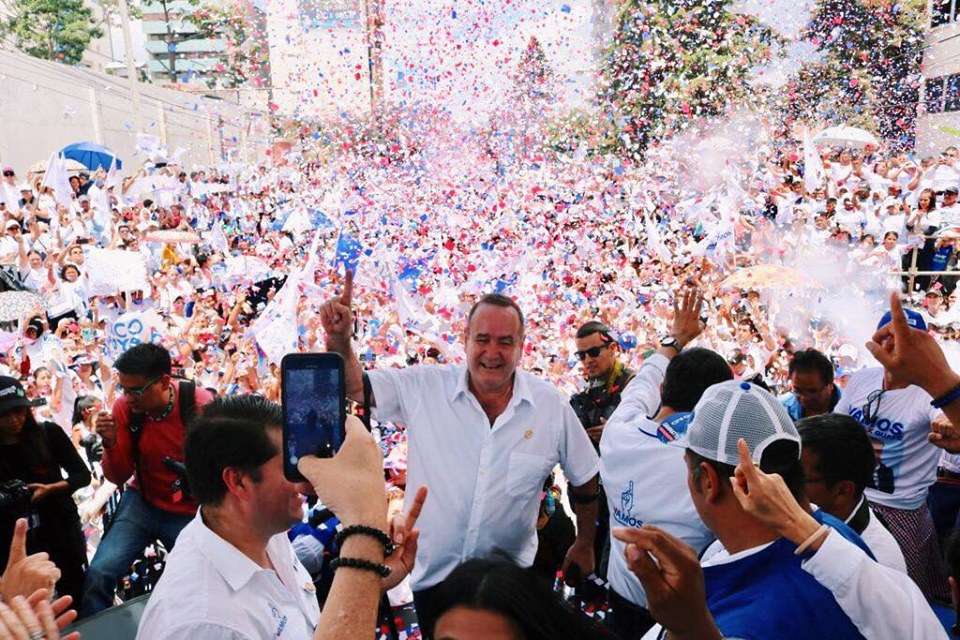
GUATEMALA CITY — President-elect Alejandro Giammattei said Tuesday that Guatemala will not be able to hold up its side of an immigration agreement with the United States by serving as a “safe third country” for asylum seekers.
Giammattei told The Associated Press his country cannot tend to its own people, let alone those from other countries. The agreement signed with the United States in July by Guatemala’s current administration would require asylum seekers from other countries transiting Guatemala to seek asylum here rather than in the U.S.
“In order to be a safe country, one has to be certified as such by an international body, and I do not think Guatemala fulfills the requirements to be a third safe country. That definition doesn’t fit us,” said Giammattei, a conservative who won Sunday’s presidential runoff election.
“If we do not have the capacity for our own people, just imagine other people,” Giammattei said.
Guatemalans make up one of the largest groups emigrating from Central America because of poverty, unemployment and crime. Critics say it is hard to see how the country could offer a safe haven to migrants from other nations.
The agreement, signed by the government of outgoing President Jimmy Morales, is aimed at reducing the number of asylum seekers arriving at the U.S.-Mexico border. U.S. President Donald Trump’s administration pressured Guatemala to sign the deal by threatening to punish Guatemala with taxes.
Giammattei, who takes office Jan. 14, said that annexes to the agreement are still being negotiated with the United States and that he would ask Morales to include members of his transition team in those talks.
The president-elect also noted that the agreement would have to be ratified by the congresses of both nations to go into force. There has been widespread criticism of the deal in Guatemala.
Giammattei pledged to recognize the importance of Guatemalan migrants living in the United States by creating a Washington-based Cabinet-level position to attend to migrant affairs.
“It is about time we had a government that cared for the people,” he said. “It is these people (migrants) who are supporting us” with the remittance money they send back to relatives in Guatemala, he added.
“I do not think physical walls, or walls of weapons, can stop migration,” Giammattei said. “I think what can stop migration are walls of opportunities.”
On another matter, the incoming leader distanced himself from Morales’ unpopular decision to not renew the mandate of the U.N.-sponsored anti-corruption commission that has played a key role in sending high-ranking politicians, including ex-presidents, to jail. But Giammattei also indicated he wouldn’t work to bring back the commission, known as CICIG.
“The mandate has been terminated; the United Nations accepted that,” he said.
He said he has no legal capacity or any other authority to ask Morales to renew the commission. “The CICIG is disappearing and history will judge whether Morales’ decision was right or not,” he said.